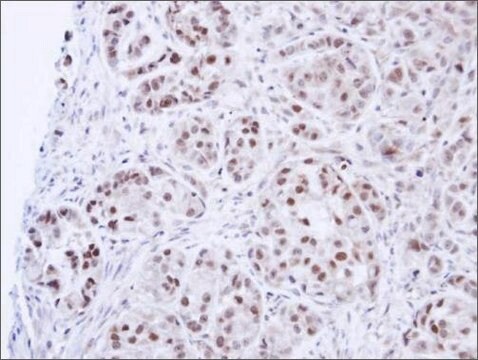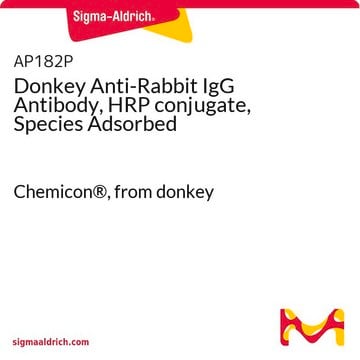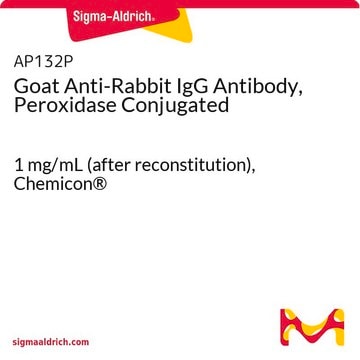SAB4200042
Anti-USP7 antibody, Rat monoclonal
clone USP 3D8, purified from hybridoma cell culture
Synonym(e):
Anti-HAUSP, Anti-TEF1, Monoclonal Anti-USP7 antibody produced in rat
About This Item
Empfohlene Produkte
Biologische Quelle
rat
Konjugat
unconjugated
Antikörperform
purified from hybridoma cell culture
Antikörper-Produkttyp
primary antibodies
Klon
USP 3D8, monoclonal
Form
buffered aqueous solution
Mol-Gew.
antigen ~130 kDa
Speziesreaktivität
human, rat
Verpackung
antibody small pack of 25 μL
Methode(n)
immunocytochemistry: suitable
immunoprecipitation (IP): suitable
western blot: 2-4 μg/mL using HeLa cell extracts
UniProt-Hinterlegungsnummer
Versandbedingung
dry ice
Lagertemp.
−20°C
Posttranslationale Modifikation Target
unmodified
Angaben zum Gen
human ... USP7(7874)
Allgemeine Beschreibung
Spezifität
Anwendung
- immunoblotting
- immunoprecipitation
- immunocytochemistry
Biochem./physiol. Wirkung
Zielbeschreibung
Physikalische Form
Lagerung und Haltbarkeit
Haftungsausschluss
Not finding the right product?
Try our Produkt-Auswahlhilfe.
Lagerklassenschlüssel
10 - Combustible liquids
Flammpunkt (°F)
Not applicable
Flammpunkt (°C)
Not applicable
Analysenzertifikate (COA)
Suchen Sie nach Analysenzertifikate (COA), indem Sie die Lot-/Chargennummer des Produkts eingeben. Lot- und Chargennummern sind auf dem Produktetikett hinter den Wörtern ‘Lot’ oder ‘Batch’ (Lot oder Charge) zu finden.
Besitzen Sie dieses Produkt bereits?
In der Dokumentenbibliothek finden Sie die Dokumentation zu den Produkten, die Sie kürzlich erworben haben.
Unser Team von Wissenschaftlern verfügt über Erfahrung in allen Forschungsbereichen einschließlich Life Science, Materialwissenschaften, chemischer Synthese, Chromatographie, Analytik und vielen mehr..
Setzen Sie sich mit dem technischen Dienst in Verbindung.






